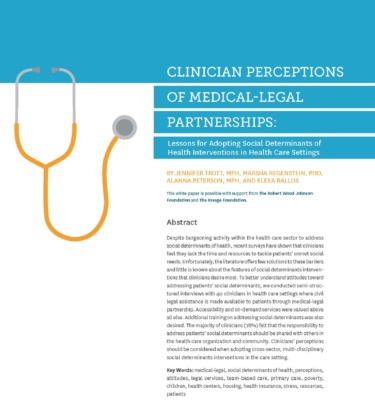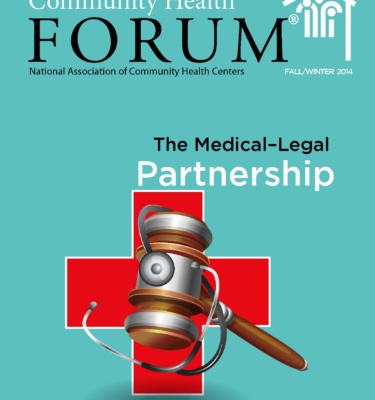Monday, June 10, 2019
Based on interviews with 40 clinicians in health care settings that offer vulnerable patients access to civil legal services, this white paper examines clinicians' perceptions related to their role and preferences when it comes to addressing social determinants of health. Using medical-legal partnership as one promising intervention, the paper illustrates the features of the model that clinicians perceive to be most attractive and beneficial for patient care. Among the paper's findings, clinicians reported feeling that legal services resolved patient issues efficiently and effectively, and that the co-location / accessibility of in-house legal services was one of the most valued aspects of the model....Read More
Tuesday, September 19, 2017
In 2011, the authors implemented a four-session didactic interprofessional curriculum on medical–legal practice for third-year medical students at Morehouse School of Medicine. This program, also attended by law students, focused on interprofessional collaboration to address client/patient social determinant of health (SDOH) issues and health-harming legal needs. Postintervention survey results indicated that students self-reported an increased likelihood to screen patients for SDOH issues and an increased likelihood to refer patients to a legal resource....Read More
Saturday, November 12, 2016
Through a case study, this Perspective explores how residents can address health-harming legal needs working in partnership with interprofessional health care teams that include lawyers, and illustrates how such MLP experiences can relate to competency-based Milestones that are applicable to training residents in all specialties....Read More
Friday, January 9, 2015
Three articles in the National Association of Community Health Center magazine trace the origins of medical-legal partnership and feature interviews with health center CEOs about why they embrace legal services at their clinics....Read More


